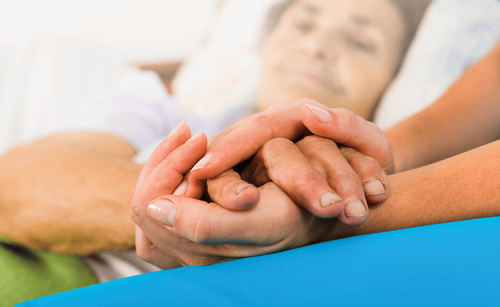This is an automatically translated article.
The article is professionally consulted by Specialist Doctor I Le Thien Quang - Internal Oncologist - Department of Medical Examination & Internal Medicine - Vinmec Danang International General Hospital. The doctor has more than 15 years of experience in the field of examination and diagnosis of oncological diseases and treatment modalities of radiation therapy, chemotherapy, targeted therapy and palliative care.When diagnosed with cancer, the patient will have questions such as: should cancer be treated, what is chemotherapy, radiotherapy?... Here is the important information patients need. before starting the decision-making process.
1. Information about the patient's type of cancer
There are different treatments for cancer depending on the type of cancer and the stage at which it was found. Therefore, patients should learn as much as possible to understand and know their specific condition.Most patients will have many questions and questions related to their cancer, such as whether cancer should have surgery, cancer should have radiation therapy, ... but do not ask directly. consult a doctor, but instead go online to find out. Be careful as many unorthodox online sites can provide inaccurate or misleading information that cancer should not be treated, causing undue fear in patients. In this case, the patient can ask the doctor to recommend some reputable and reliable websites so that the patient can rest assured to consult the information. Throughout the online research process, if patients encounter difficult technical terms, they can use a medical dictionary or ask a qualified medical staff directly for a clear explanation.
2. Selectable cancer treatments
Patients should be referred and explained to their doctor about appropriate treatments for the type of cancer they have, as well as the stage of tumor growth. Some common forms of treatment include:Cancer surgery Radiotherapy Chemotherapy Hormone therapy Targeted therapy Immunotherapy Active surveillance, or watch-and-waiting Palliative care After understanding Clearly, patients can consider whether or not cancer should be treated and how.
3. Treatment goals
Your doctor may use a number of treatments to slow, stop, or eliminate cancer cells. Cancer treatments are also used as palliative care, which aims to control symptoms and side effects. At this point, the patient needs to be explained by the doctor and understand the goals of the treatment plan, as well as the possible effects on the patient. The goal of treatment must ensure consent from both the patient and the medical staff.
4. Side effects of each form of treatment
While treatments help patients keep their cancer cells under control, sometimes the treatments themselves can cause long-term side effects. There are cases when the patient has completed the course of treatment, it may take months and even years for the side effects to appear.Should cancer patients receive chemotherapy? What patients need to do is ask their doctor about the possible long-term effects of each treatment, as well as ways to control and limit their occurrence. In particular, patients need to clearly discuss with their healthcare professional the risks of their sexual function and reproductive health, including the risk of not being able to have children in the future.
Clearly stating individual wishes and concerns before treatment helps patients have more options to choose from to protect fertility. Otherwise, the patient will be in an unexpected situation because of the side effects of their chosen therapy, or have to panic and wait for the results until the treatment is over.
5. Risks and benefits of each measure
Similar to the above, patients need to weigh the positives and negatives of each form of treatment before choosing therapy or deciding that cancer should not be treated, such as:Chances of successful cure
Short-term and possible future side effects Risk of cancer recurrence after treatment Chances and survival compared to no treatment Impact on quality of life and ability to function patient's independence The wishes of the patient and family members.
6. Change hospital and treating doctor
Many people seek one or even more hospitals to re-diagnose their illness. In fact, medical professionals also encourage this practice, because different doctors, even though they specialize in cancer, will have different experience and treatment methods. Therefore, getting more diagnostic results from places can help patients make decisions about whether or not their cancer should be treated or confirm and have more confidence in their current treatment regimen.In addition to the criteria of prestige and quality, patients should also check their health insurance cards to see which hospitals are on the support list before deciding to visit another place.

7. Cost of cancer care and treatment
Everyone knows that the cost of cancer care and treatment is often very high, but there will also be additional costs that sometimes patients do not expect. Hospital staff should help the patient determine the total costs of each treatment or suggest ways that fit the patient's family's economic capabilities.If possible, the hospital should introduce patients to services to support medical expenses, programs and policies for cancer patients with difficult circumstances, as well as benefactors, volunteer organizations to give them the opportunity to help.
8. Use decision-making tools
Cancer organizations and associations around the world have designed tools and manuals to guide patients on how to make the best treatment decisions. This helpful information will help doctors and patients better understand different cancer treatments, as well as make recommendations needed for the specific type of cancer a patient has. Patients can ask the hospital medical staff directly for more detailed information about these tools and manuals.9. Opinions of trusted patients
Some people find it helpful to share their thoughts and concerns with trusted people about whether their cancer should be treated, radiation therapy, chemotherapy, or surgery. The subjects patients often talk about can be:Family members Friends Psychologists Religious groups Employees of cancer social organizations People who have had or are suffering from other cancers.

10. The role of statistics
Patients may hear doctors or other sources of information mention statistics when describing cancer treatments, including:Relative survival Rate of disease-free survival (no signs of signs of cancer in the body after treatment is complete) Progression-free survival (still with cancer, but no tumor growth after treatment) These percentages are helpful for patients learn and understand how different treatments work. However, they cannot accurately predict the effectiveness of treatment for each individual patient. Healthcare professionals should explain how these statistics relate to the patient's treatment and outlook.
Decisions about cancer treatment can be difficult for patients and families because of anxiety, unfamiliar terms, statistics and many sources of confusing information such as having cancer should not be treated. If the time to decide on a treatment option is not urgent, the patient should take the time to research, ask questions and share with trusted people around issues such as: having cancer should Chemotherapy, whether cancer should have surgery, cancer should radiation therapy,... Thorough understanding of the advantages and disadvantages of each form of treatment will help patients easily make decisions and feel secure. with your treatment.
Currently, Vinmec International General Hospital applies many different cancer treatment methods, depending on the type of cancer and the extent of the disease, such as: Surgery. Chemotherapy, Radiotherapy, Targeted Treatment with Monoclonal Antibodies, Endocrine Treatment, Immunotherapy and Palliative Care... Cancer patients are treated multimodally with a combination of methods, Each stage has different treatment methods to bring the most effective treatment to the patient.
Please dial HOTLINE for more information or register for an appointment HERE. Download MyVinmec app to make appointments faster and to manage your bookings easily.
Reference source: Cancer.net














